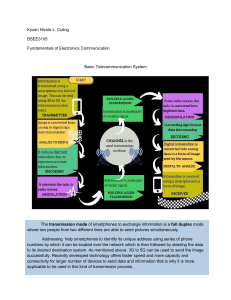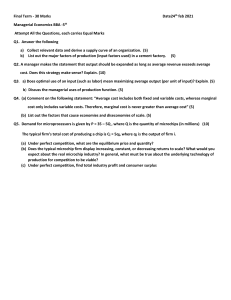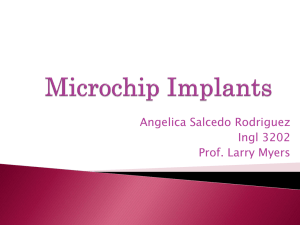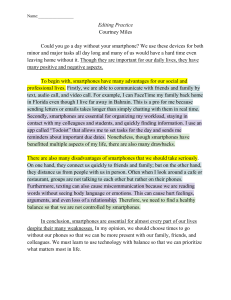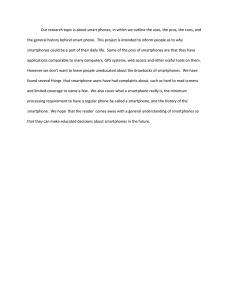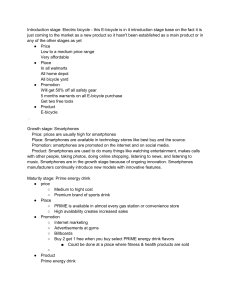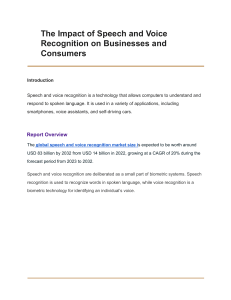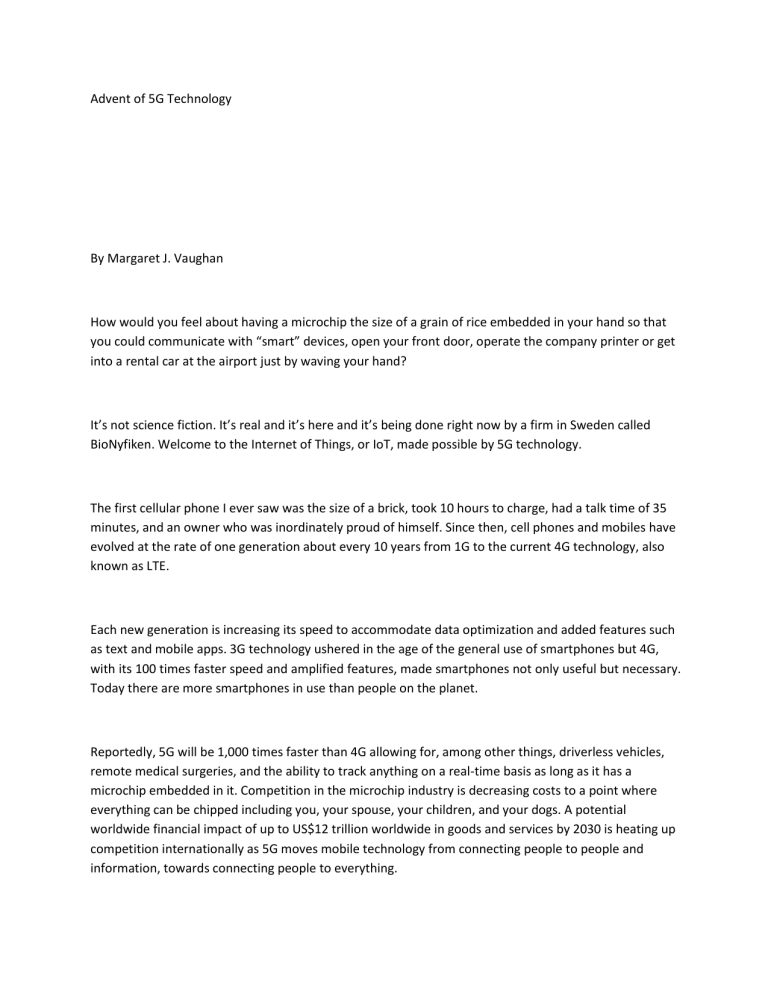
Advent of 5G Technology By Margaret J. Vaughan How would you feel about having a microchip the size of a grain of rice embedded in your hand so that you could communicate with “smart” devices, open your front door, operate the company printer or get into a rental car at the airport just by waving your hand? It’s not science fiction. It’s real and it’s here and it’s being done right now by a firm in Sweden called BioNyfiken. Welcome to the Internet of Things, or IoT, made possible by 5G technology. The first cellular phone I ever saw was the size of a brick, took 10 hours to charge, had a talk time of 35 minutes, and an owner who was inordinately proud of himself. Since then, cell phones and mobiles have evolved at the rate of one generation about every 10 years from 1G to the current 4G technology, also known as LTE. Each new generation is increasing its speed to accommodate data optimization and added features such as text and mobile apps. 3G technology ushered in the age of the general use of smartphones but 4G, with its 100 times faster speed and amplified features, made smartphones not only useful but necessary. Today there are more smartphones in use than people on the planet. Reportedly, 5G will be 1,000 times faster than 4G allowing for, among other things, driverless vehicles, remote medical surgeries, and the ability to track anything on a real-time basis as long as it has a microchip embedded in it. Competition in the microchip industry is decreasing costs to a point where everything can be chipped including you, your spouse, your children, and your dogs. A potential worldwide financial impact of up to US$12 trillion worldwide in goods and services by 2030 is heating up competition internationally as 5G moves mobile technology from connecting people to people and information, towards connecting people to everything.

